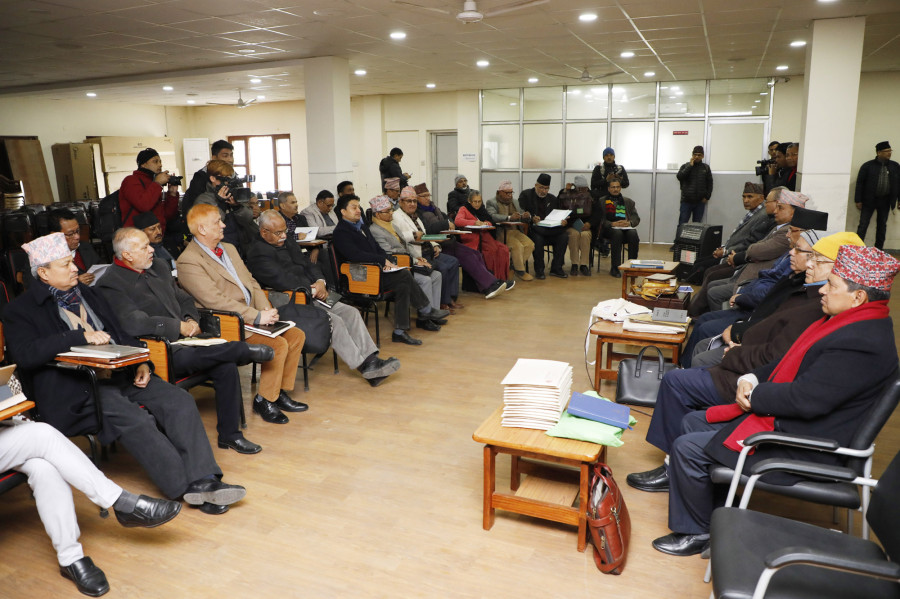National
Leadership’s interpretation of IPS and BRI leads to divisions in ruling party
Siding with one global power and opposing another will affect Nepal’s policy of non-alignment, foreign policy analysts say.
Anil Giri
Competing interpretations over the US-led Indo-Pacific Strategy and the China-led Belt and Road Initiative have led to sharp divisions in the ruling Nepal Communist Party.
A political document presented by co-chairs KP Sharma Oli and Pushpa Kamal Dahal states that the US-initiated Indo-Pacific Strategy is aimed largely at countering China and expanding its dominance through a military strategy. The document does not mention the Millennium Challenge Corporation, but hails China’s Belt and Road Initiative as part of a “partnership strategy” to expand global connectivity.
But party members say that these are one-sided interpretations and largely clash with the Oli administration’s foreign policy agenda. Siding with one power and opposing another will hamper Nepal’s long-standing policy of non-alignment, according to party leaders and foreign policy enthusiasts.
Gokul Baskota, minister for communication and information technology, confirmed that party leaders are divided over the Indo-Pacific Strategy, the Belt and Road Initiative and the Millennium Challenge Corporation.
At the regular press briefing on Thursday, Baskota told journalists that the party does not have the capacity to ascertain which country’s policy is against whom.
“We should stop making assumptions,” said Baskota. “It is not the job of a party to interpret US and China policies.”
Oli and a large section of leaders belonging to the former UML are in support of the MCC while those opposed are largely former Maoists. Oli has made it clear that the MCC’s Nepal compact will be ratified from the ongoing winter session of Parliament.
The major bone of contention in the ruling party is whether the MCC is part of the US’s Indo-Pacific Strategy. Time and again, several visiting US officials have told Nepali media persons that the Indo-Pacific Strategy is not directed at any country.
“But the political document has interpreted the American and Chinese initiatives and shows that the party is supportive of one country and opposed to another,” said one ruling party member on condition of anonymity.
For Nepal’s communist parties, a major concern during their past meetings has been India and the influence it exercises on the country. Now the focus has shifted to a wider ambit to include global players like the US and China.
“Much of the debate that is going on in our party is based on misinformation,” said another central member who requested anonymity because he feared retribution. “A wave of nationalism is rising in our party. Our discussions are not based on merit; we are rather trying to pass the verdict saying one initiative is good and another is bad.”
On MCC, according to Bishnu Rijal, deputy chief of the party’s foreign affairs department, the party will likely form a study or fact-finding team to reach consensus.
Some leaders have criticised the party leadership for failing to find a common position on key foreign policy issues like IPS, MCC and BRI, said Rijal.
According to foreign policy experts, the debate in the ruling party shows Nepal is on the radar of global actors.
“We are now feeling the heat of the strategic rivalry between India, China and the US,” said Ramesh Nath Pandey, a former foreign minister. “The government should be very careful while conducting its foreign policy.”




 19.12°C Kathmandu
19.12°C Kathmandu














